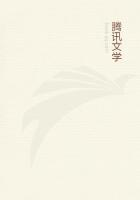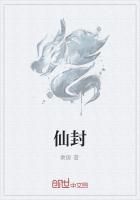About politics, in the high sense of the word, he knew nothing, and cared nothing. He called himself a Whig. His father's son could scarcely assume any other name. It pleased him also to affect a foolish dislike of kings as kings, and a foolish love and admiration of rebels as rebels; and perhaps, while kings were not in danger, and while rebels were not in being, he really believed that he held the doctrines which he professed. To go no further than the letters now before us, he is perpetually boasting to his friend Mann of his aversion to royalty and to royal persons. He calls the crime of Damien "that least bad of murders, the murder of a king." He hung up in his villa an engraving of the death-warrant of Charles, with the inscription "Major Charta." Yet the most superficial knowledge of history might have taught him that the Restoration, and the crimes and follies of the twenty-eight years which followed the Restoration, were the effects of this Greater Charter. Nor was there much in the means by which that instrument was obtained that could gratify a judicious lover of liberty. A man must hate kings very bitterly, before he can think it desirable that the representatives of the people should he turned out of doors by dragoons, in order to get at a king's head. Walpole's Whiggism, however, was of a very harmless kind. He kept it, as he kept the old spears and helmets at Strawberry Hill, merely for show. He would just as soon have thought of taking down the arms of the ancient Templars and Hospitallers from the walls of his hall, and setting off on a crusade to the Holy Land, as of acting in the spirit of those daring warriors and statesmen, great even in their errors, whose names and seals were affixed to the warrant which he prized so highly. He liked revolution and regicide only when they were a hundred years old. His republicanism, like the courage of a bully, or the love of a fribble, was strong and ardent when there was no occasion for it, and subsided when he had an opportunity of bringing it to the proof. As soon as the revolutionary spirit really began to stir in Europe, as soon as the hatred of kings became something more than a sonorous phrase, he was frightened into a fanatical royalist, and became one of the most extravagant alarmists of those wretched times. In truth, his talk about liberty, whether he knew it or not, was from the beginning a mere cant, the remains of a phraseology which had meant something in the mouths of those from whom he had learned it, but which, in his mouth, meant about as much as the oath by which the Knights of some modern orders bind themselves to redress the wrongs of all injured ladies. He had been fed in his boyhood with Whig speculations on government. He must often have seen, at Houghton or in Downing Street, men who had been Whigs when it was as dangerous to be a Whig as to be a highwayman, men who had voted for the Exclusion Bill, who had been concealed in garrets and cellars after the battle of Sedgemoor, and who had set their names to the declaration that they would live and die with the Prince of Orange. He had acquired the language of these men, and he repeated it by rote, though it was at variance with all his tastes and feelings; just as some old Jacobite families persisted in praying for the Pretender, and in passing their glasses over the water decanter when they drank the King's health, long after they had become loyal supporters of the government of George the Third. He was a Whig by the accident of hereditary connection; but he was essentially a courtier; and not the less a courtier because he pretended to sneer at the objects which excited his admiration and envy. His real tastes perpetually show themselves through the thin disguise. While professing all the contempt of Bradshaw or Ludlow for crowned heads, he took the trouble to write a book concerning Royal Authors. He pryed with the utmost anxiety into the most minute particulars relating to the Royal family. When, he was a child, he was haunted with a longing to see George the First, and gave his mother no peace till she had found a way of gratifying his curiosity. The same feeling, covered with a thousand disguises, attended him to the grave. No observation that dropped from the lips of Majesty seemed to him too trifling to be recorded. The French songs of Prince Frederic, compositions certainly not deserving of preservation on account of their intrinsic merit, have been carefully preserved for us by this contemner of royalty. In truth, every page of Walpole's works betrays him.
This Diogenes, who would be thought to prefer his tub to a palace, and who has nothing to ask of the masters of Windsor and Versailles but that they will stand out of his light, is a gentleman-usher at heart.
He had, it is plain, an uneasy consciousness of the frivolity of his favourite pursuits; and this consciousness produced one of the most diverting of his ten thousand affectations. His busy idleness, his indifference to matters which the world generally regards as important, his passion for trifles, he thought fit to dignify with the name of philosophy. He spoke of himself as of a man whose equanimity was proof to ambitious hopes and fears, who had learned to rate power, wealth, and fame at their true value, and whom the conflict of parties, the rise and fall of statesmen, the ebb and flow of public opinion, moved only to a smile of mingled compassion and disdain. It was owing to the peculiar elevation of his character that he cared about a pinnacle of lath and plaster more than about the Middlesex election, and about a miniature of Grammont more than about the American Revolution.
Pitt and Murray might talk themselves hoarse about trifles. But questions of government and war were too insignificant to detain a mind which was occupied in recording the scandal of club-rooms and the whispers of the back-stairs, and which was even capable of selecting and disposing chairs of ebony and shields of rhinoceros-skin.















